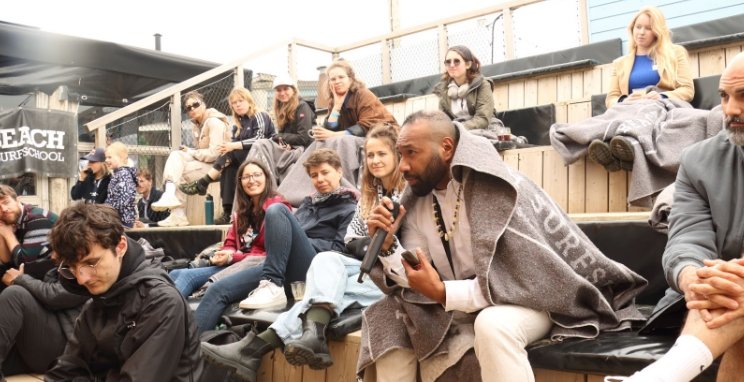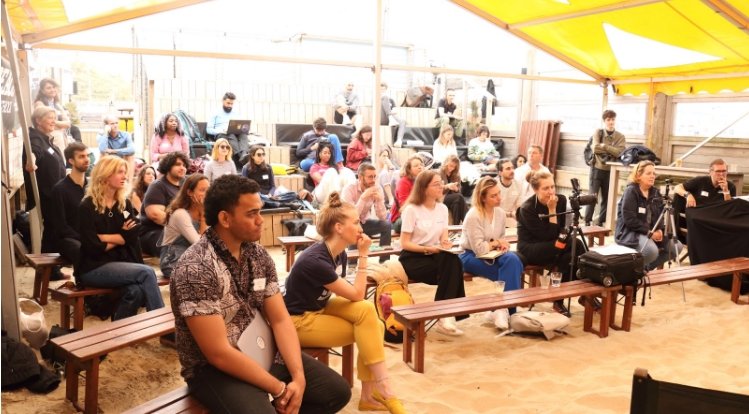Climate Justice Story Lab x Movies that Matter with Not Just Celsius
Two weeks ago, we wrapped up a two-day Climate Justice Story Lab on the beach of The Hague, the Netherlands, together with Not Just Celsius. The Climate Justice Story Lab is a space for climate litigators, storytellers, campaigners from NGOs and foundations, journalists, activists, and scientists alike. While considering the threats of climate change, participants explored the opportunities of using the law to advance climate action.
The lab examined different perspectives on climate justice, such as the rights of nature movement and decolonization—not only its historical aspects but also the entrenched financial and economic structures that hinder progress in climate justice and decolonization. Although the Dutch weather was a little unreliable, it was a wonderful and collaborative two-day discussion, with room for networking and learning from each other’s experiences.
The event emphasized how stories can drive change. Laurence Ivil from Not Just Celsius kicked off the event with a talk about why stories matter: “All stories matter, but not all stories have an equal impact.” Throughout the two days, we discussed in keynotes, panel discussions, and brainstorming sessions how storytelling can be used in our climate justice campaigns, especially in bringing a jargon-heavy topic - such as the advisory opinion - to a bigger audience.
Another key point of discussion was the intersection of law and climate action. Jule Schnakenberg, who has been with WYCJ since the start, and Siosiua Veikune from PISFCC gave a keynote speech on how legal strategies, such as the ICJAO campaign, can advance climate justice. This was echoed in our panel discussions, where experts like Sidal Gökalp, Lua Vollaard, and Jolien Walhof discussed how the law can be leveraged to create a real impact.
“If I can’t dance, I won’t be a part of your revolution!” - Dominique Palmer
Melati Wijsen from Youthtopia, Dominique Palmer, and Diana Frances from WWF led a very inspiring session on how to engage and activate young people in the climate movement. They showed us that the younger generation isn’t just the future — they’re leading the charge right now. They emphasized how important it is to look on the bright side and celebrate the wins. Pressure has results, but “positivity is necessary to keep going!”, according to Melati Wijsen. In order to prevent polarization of climate change, we need to see the interconnectedness and intersectionality of the issue, to go beyond institutional boundaries. “We need to adapt the message to the audience with the bigger picture in mind,” declared Madhuri Prabhakar from SOMO. Complementing the previous statements, Stephanie Afrifa, Cultural Producer, shared the necessity of community building. The climate is an overwhelming topic for most people, and so much of the discussion is removed from those whom this crisis hits the most.
There is no (climate) justice without decolonization
We had important voices like Kjelld Masoud Kroon, Frank de Morrée, Taiwo Ogunwumi, and Raki Ap discussing how entrenched financial and economic structures hinder progress. They made it clear that you can’t talk about climate justice without addressing these systemic issues.
The evenings of the two-day event were capped off with screenings of documentaries like “I Am The River, The River Is Me” and “Deep Rising,” to see in practice how impactful storytelling can be. The event was wrapped up with a beautiful performance by MAMBESAK from West Papua and some final thoughts and takeaways from Vivian Schröder and Chautuileo Tranamil.


